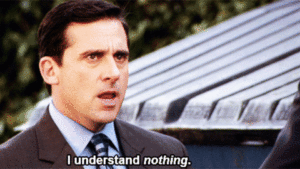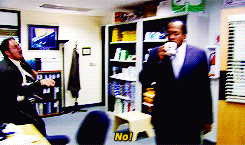I have always enjoyed writing letters. As a child who moved cities half-way through elementary school, writing postcards to old friends was a hobby. Drafting and sending thank you cards, birthday cards, and everything in-between was an activity I enjoyed doing. Therefore, when I first heard the term “cover letter,” I did not worry about having to write one. Of course, when I first had to write a cover letter, as a Freshman in college, my mind went blank.
These past few weeks have been full of cover letters for myself and for my friends as we all apply to summer internship programs. At first, I was intimidated by the ease at which some of my friends could quickly type one up and send it. I for one was creating multiple drafts, asking for peer edits, and conducting rather intensive research on each program to include in my letter(s). Was I doing it wrong? Were my friends not doing enough? Did any of us really know what we were doing? 
I really had no idea, so I checked out the career center for some tips on writing a good cover letter. After figuring out the basics, I learned that it is helpful to make a little list of essentials I want to include in each letter. First, I research the employer. What does this organization stand for, what are past accomplishments, what are their goals? It helped to find a way to relate to these things and include them in the letter. Second, I look for the desired skills and qualities of interns described by the employer. I then select specific experience from my resume to hype my qualifications up. Third, I find it helpful to get a feel for the tone of the place I am applying to. Based on their application description, website, or even blog, are they strict and formal? Sometimes they can be. Other times, they may have some humor or exclamation points in their “About Us” page. I tried to match the tone while writing about myself.
The first cover letter that I wrote in 2018 was nerve racking to send. However, a letter can only take so many peer edits. If the list of my basic essentials was met, how bad could it be? In a moment of confidence, I pressed “submit.” The amount of relief I felt after hitting my first submit button of the semester made all of the stress worth it. It also made me realize how a lot of the stress I was feeling was unnecessary. I definitely overthought it, but I will always prefer to be over-prepared than underprepared for something, especially if it has to do with my professional career.
Since I sent my first one, it became easier to write cover letters. Just like tailoring a resume, the more you do it the better at it you become. If there is any doubt in your mind while writing one, just remember that it is your space to really prove why you are perfect for the job; so essentially like a short and condensed interview, minus the stress of being on the spot. Cover letters can be really fun to write, and remember to never underestimate yourself, your skills, or your experience!


